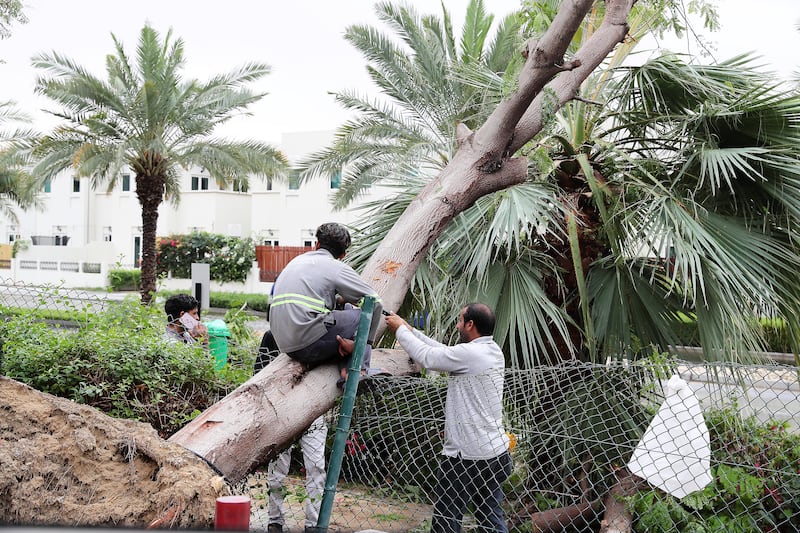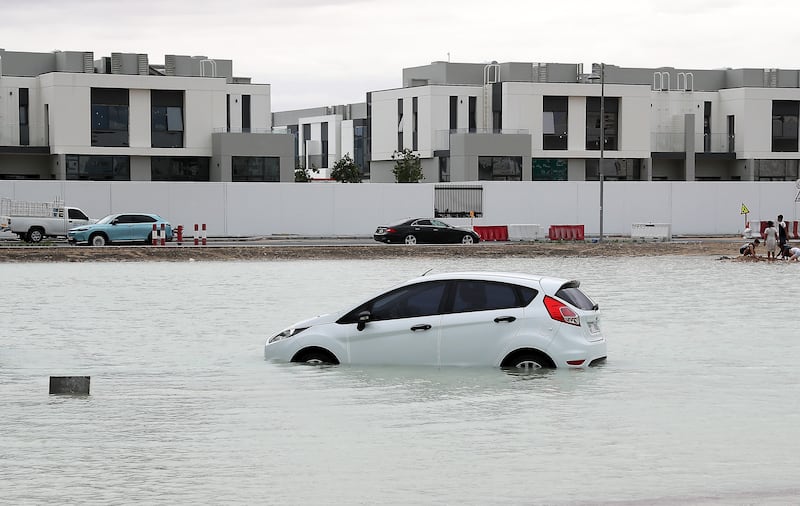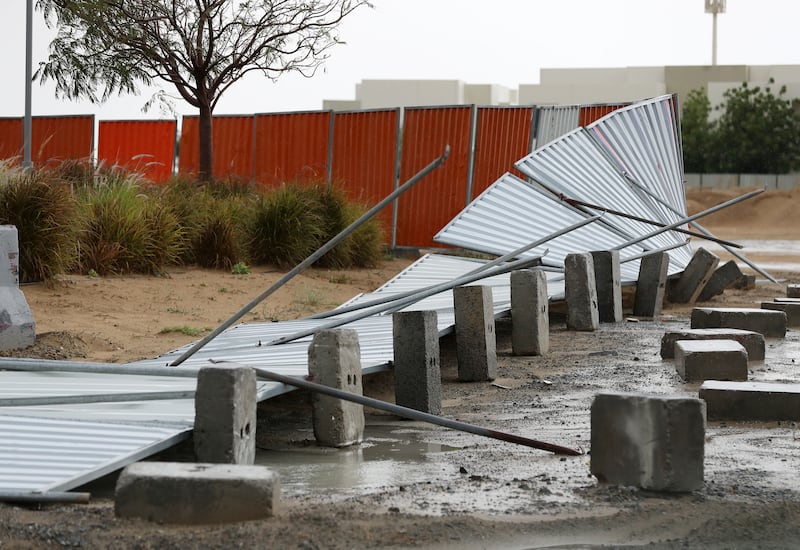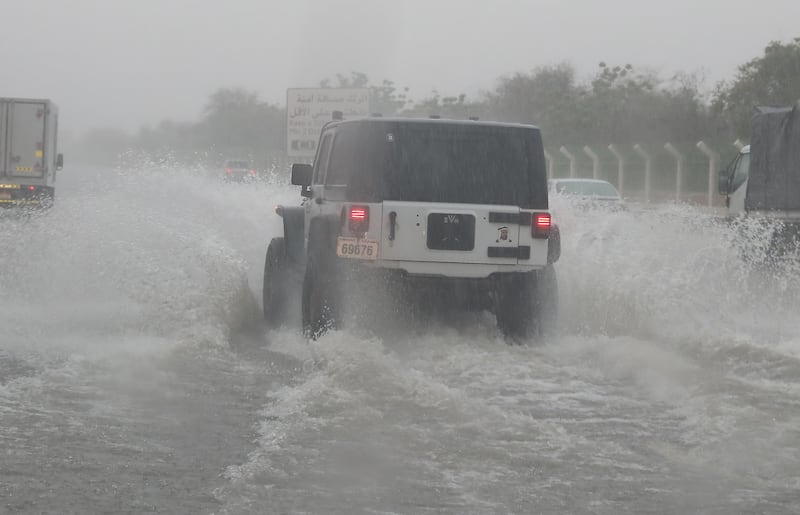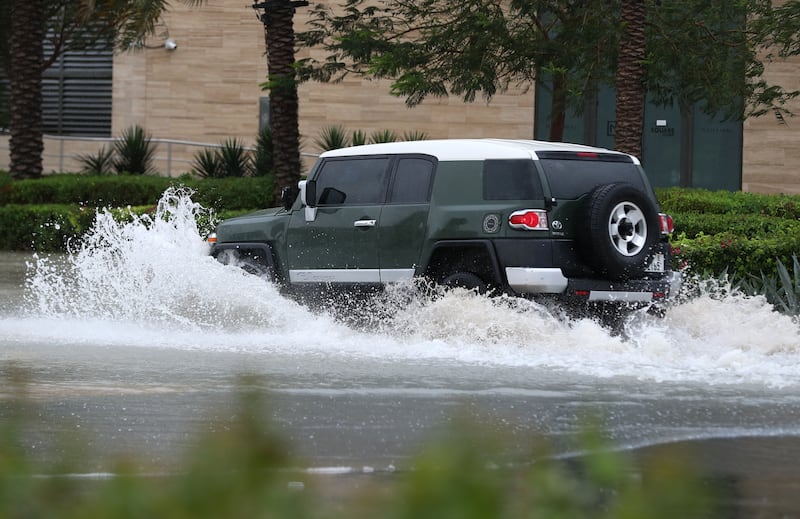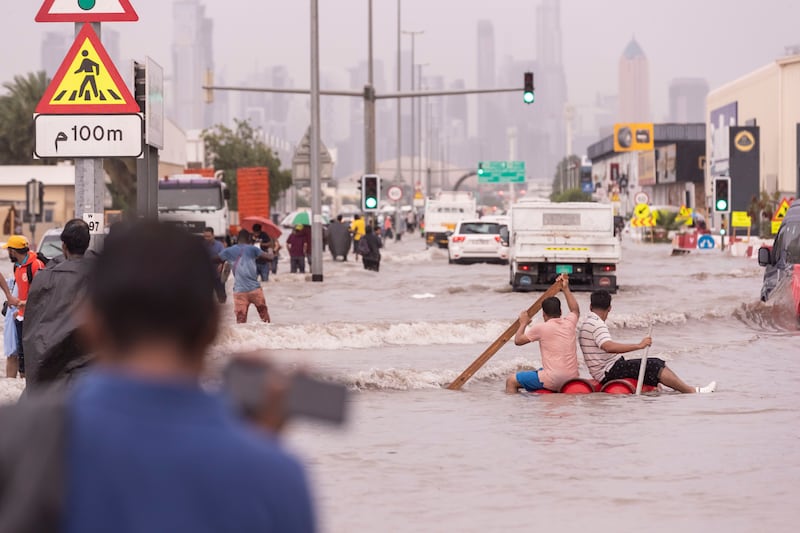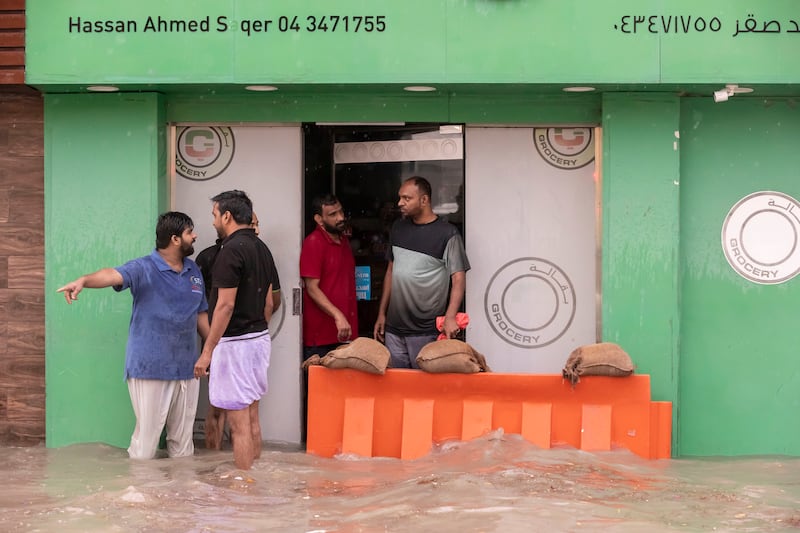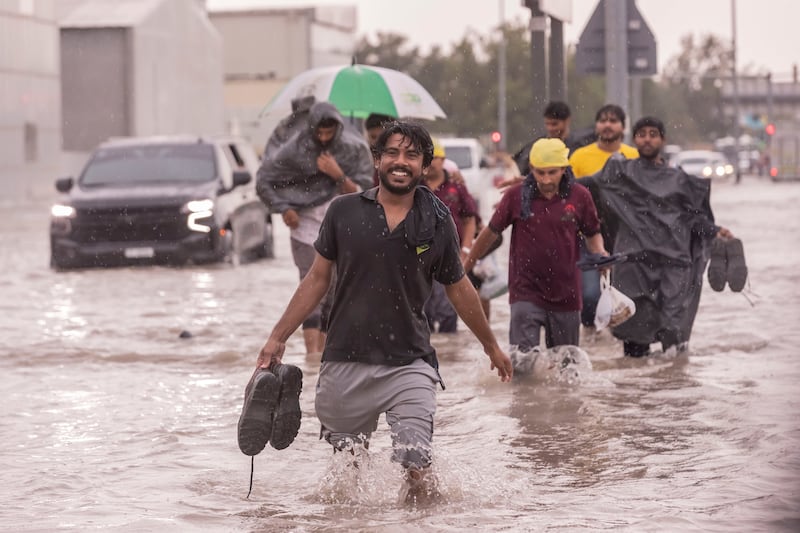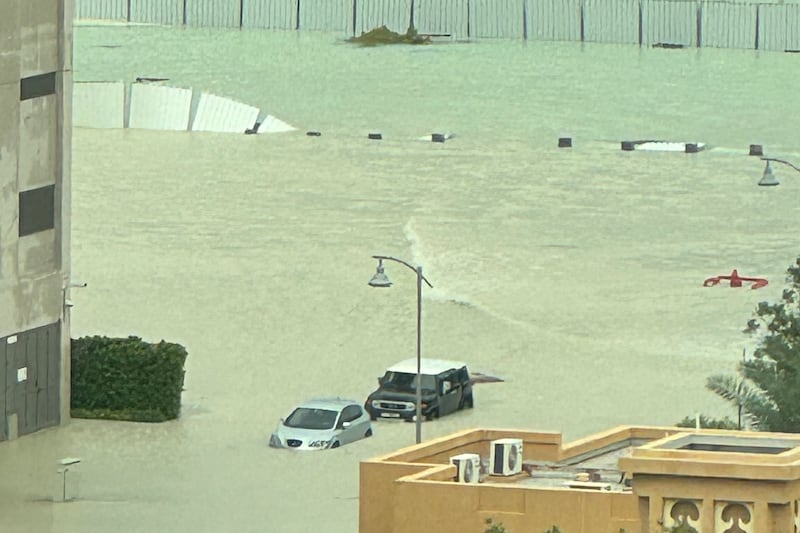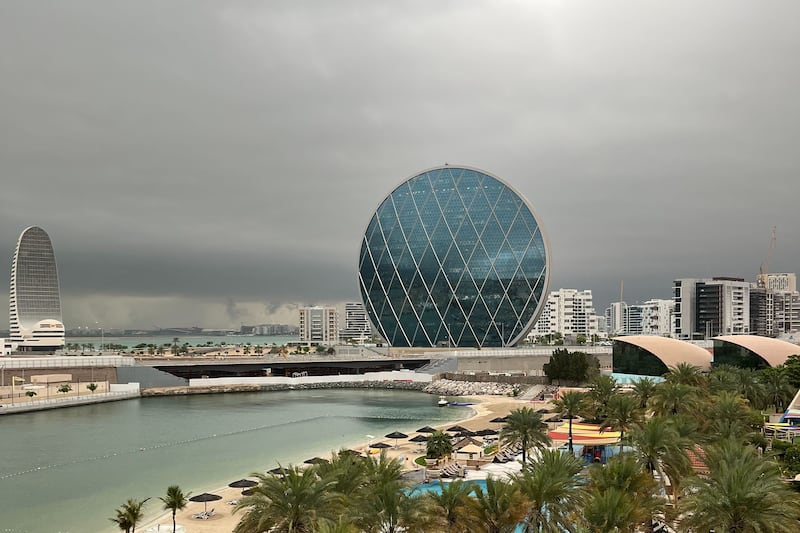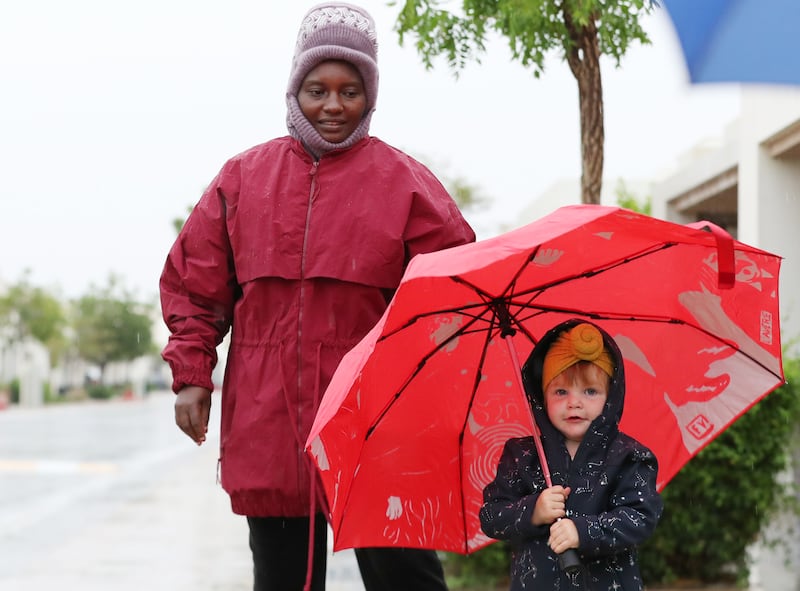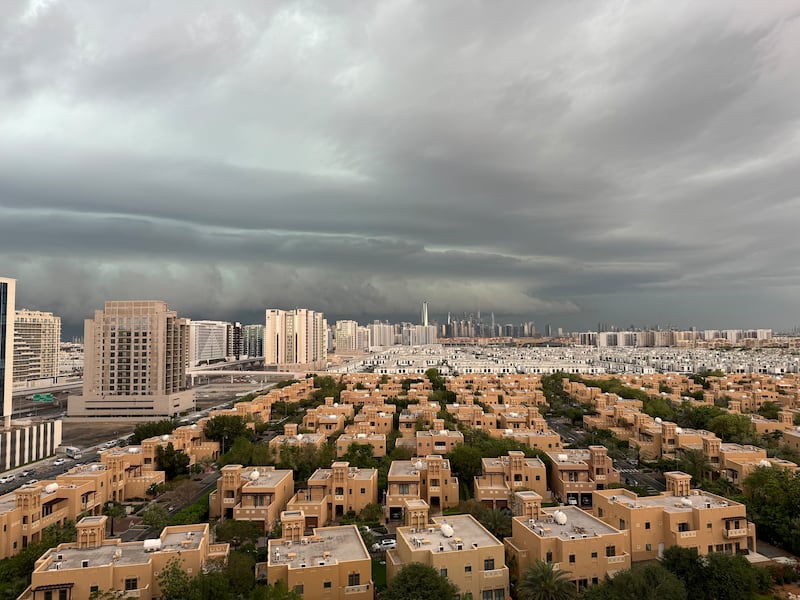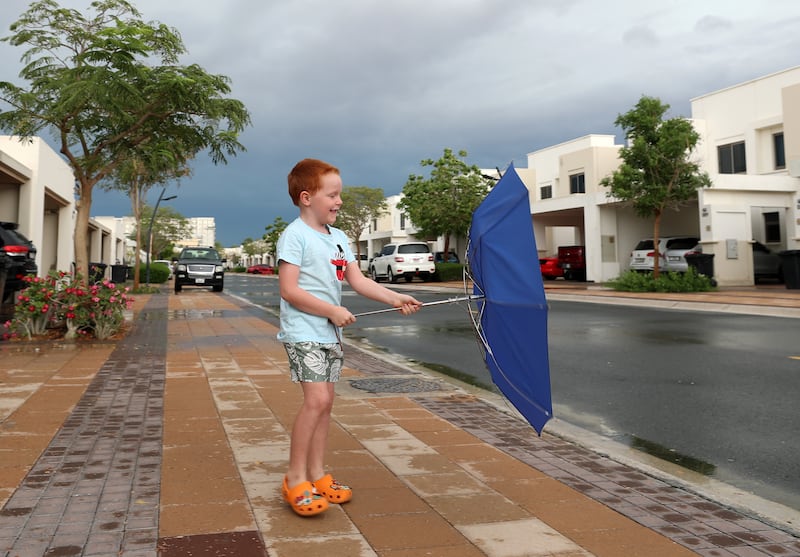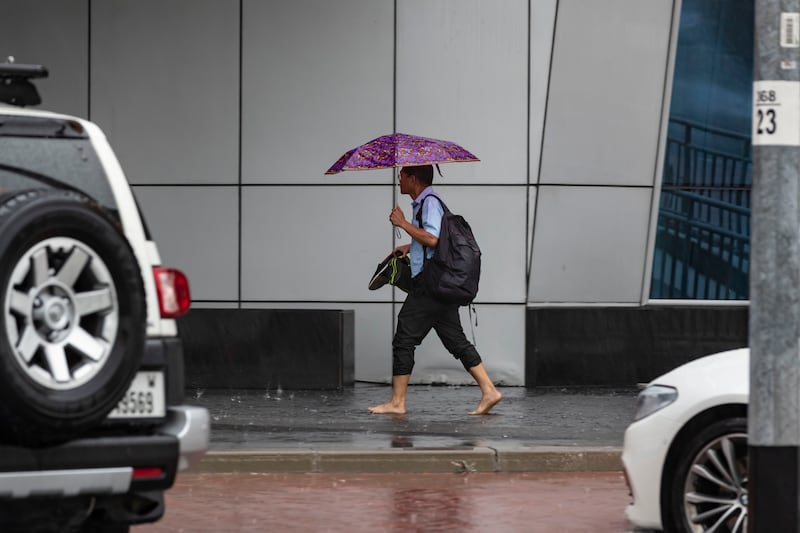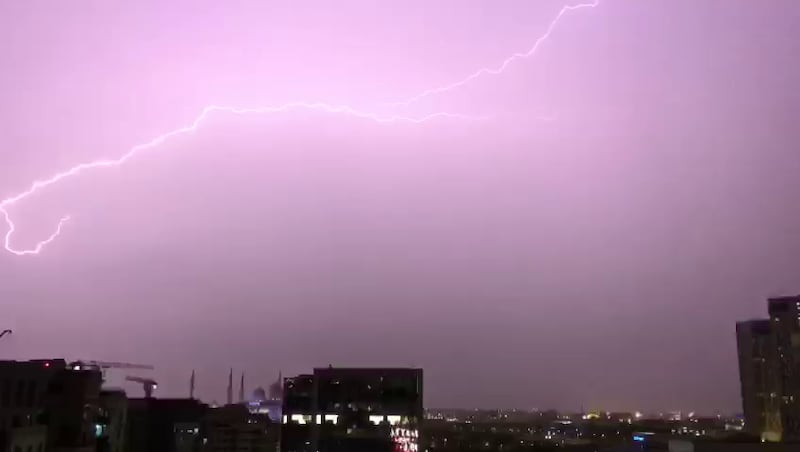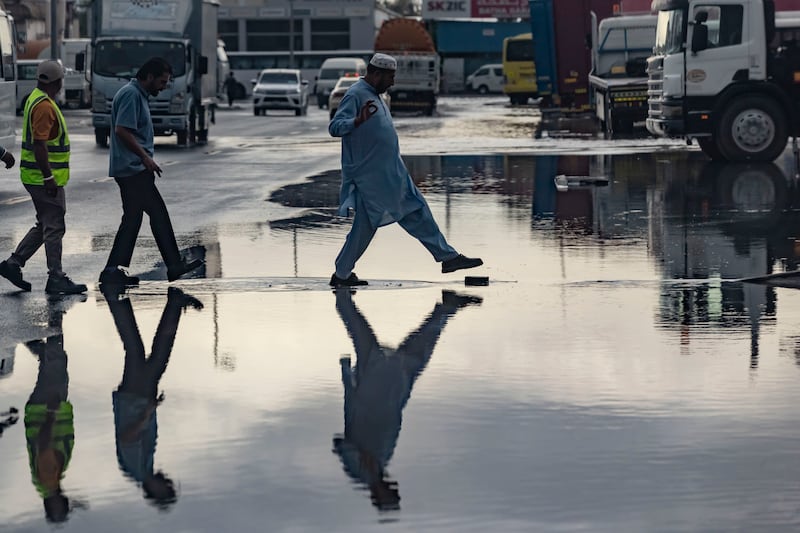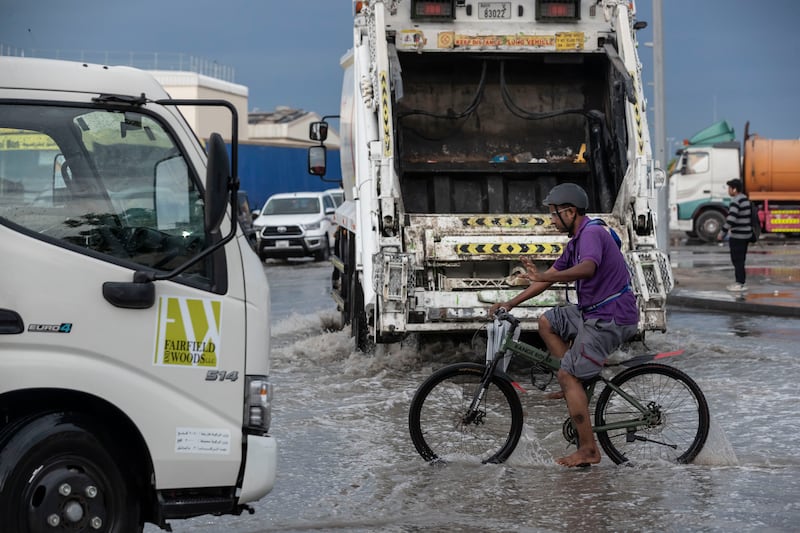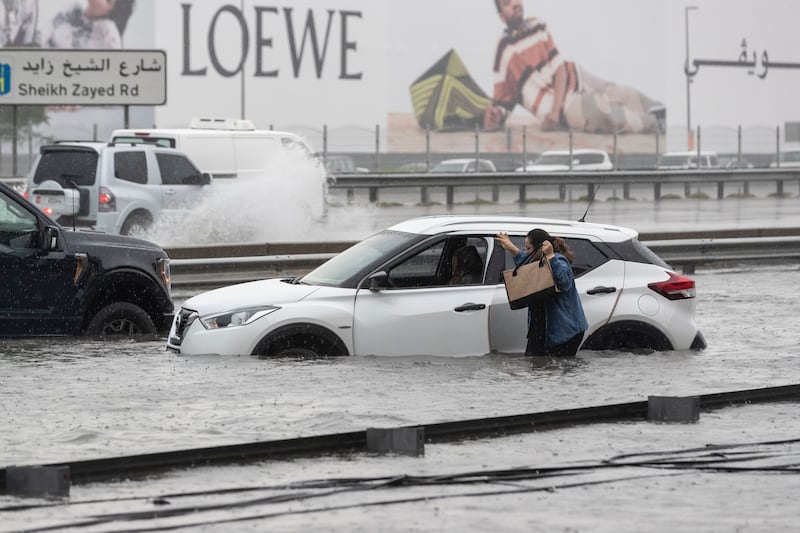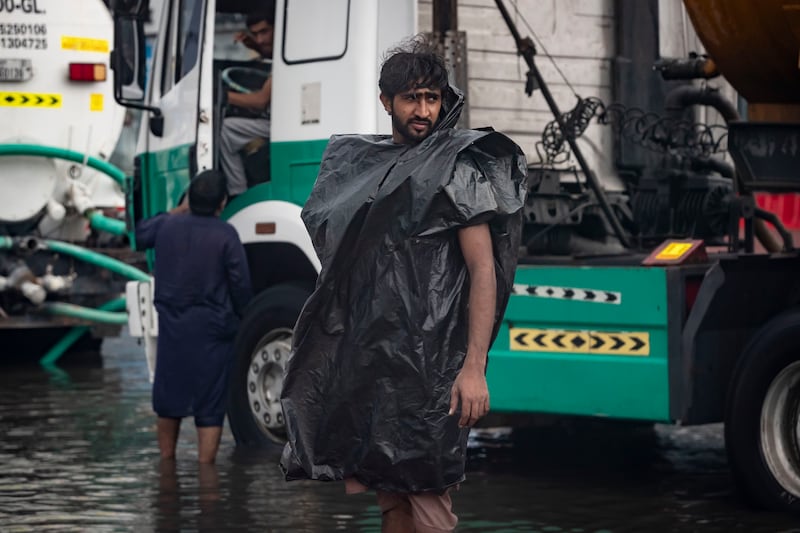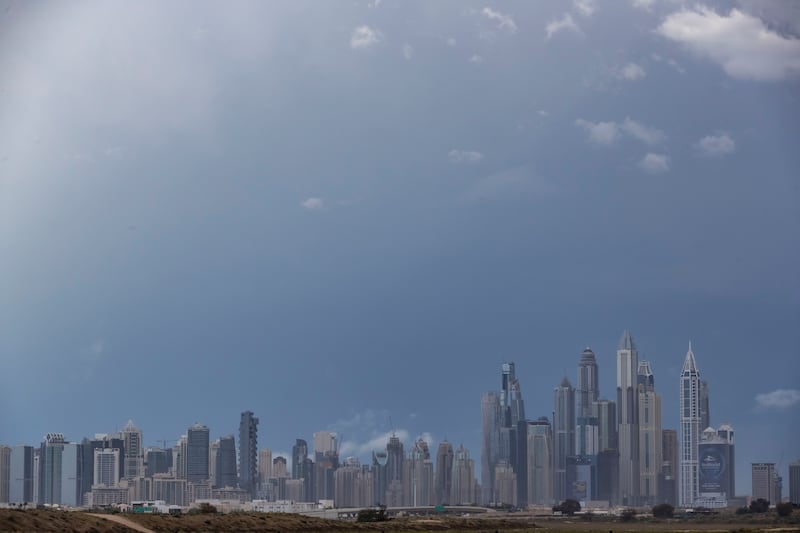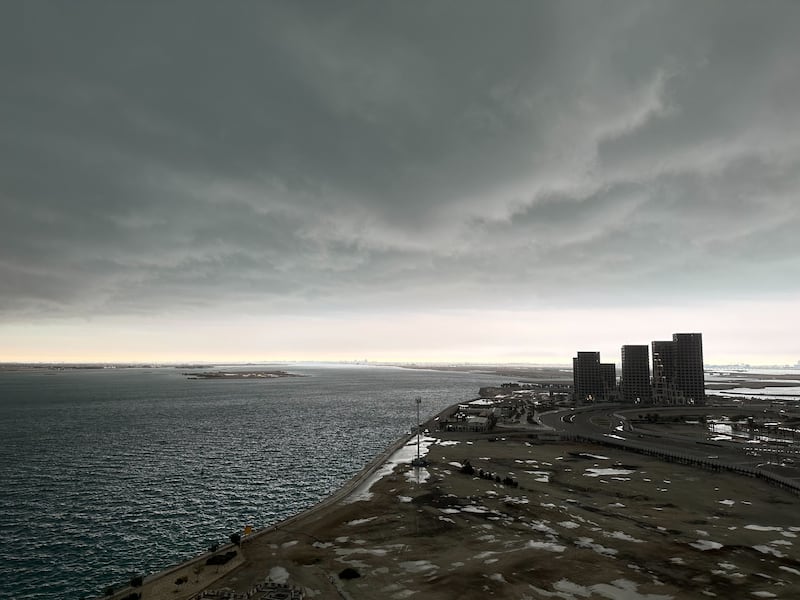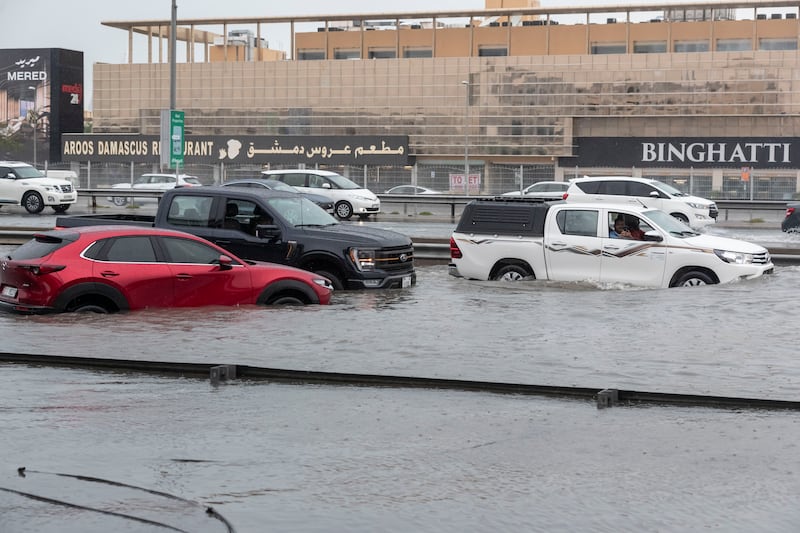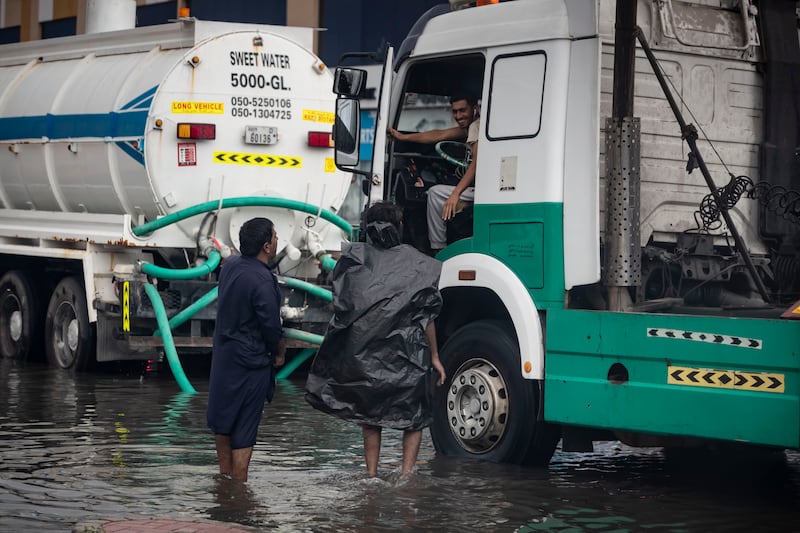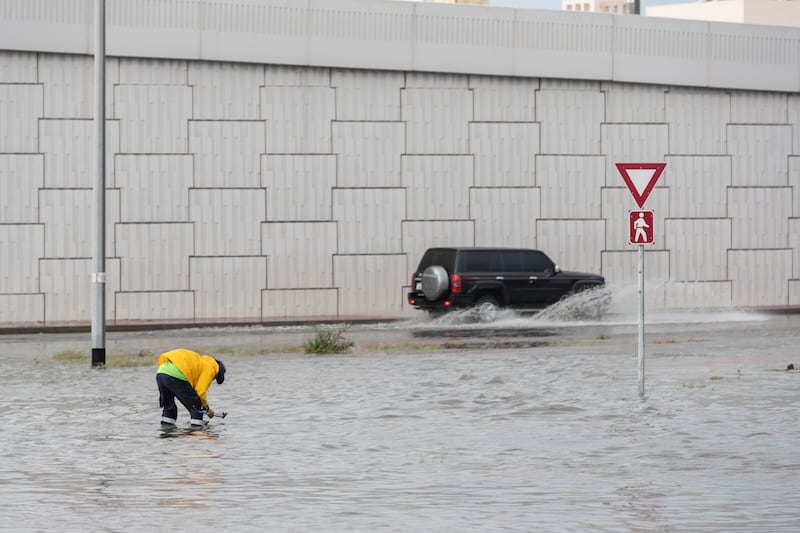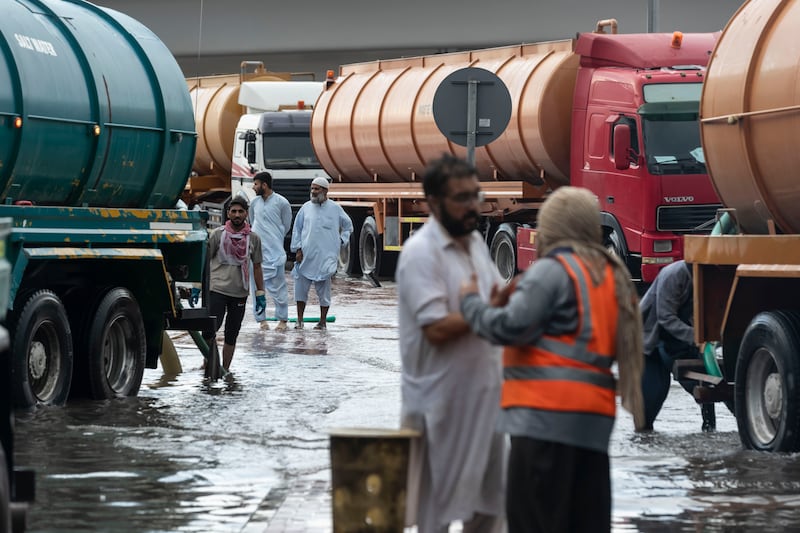More than two weeks after the UAE was battered by record rainfall, the country faced another round of unstable weather on Thursday.
But while not as severe as the April 16 storm, businesses and consumers nonetheless braced for any outcome – having been deeply affected by the previous deluge, which saw many businesses drowned in rainwater to the point of being non-operational and delivery vehicles damaged and stranded in the watery aftermath.
Images and videos of the unprecedented rain in April – the UAE's largest single day of rainfall in the 75 years since records began in 1949 – still linger, prompting reflection and preparation for the future.
Abu Dhabi and Dubai were hit by heavy rain, thunder and lightning in the early hours of Thursday morning, with more wet weather expected throughout the day. Further rainfall was recorded in the Northern Emirates in the morning.
That followed the April 16 storm that caused heavy disruption as floods filled streets and basement parking areas, transport operations were stalled, businesses and logistical services were shut down, and people were stuck in offices and metro stations. Passengers were also stranded at the Dubai International Airport, which was flooded and forced to cancel flights.
Businesses and consumers are "likely to experience a mix of concern, caution and adaptive behaviour", Roshni Sheth, Middle East retail lead at the consumer data platform Gfk, told The National.
"Concern for safety and property may prompt a shift in spending priorities towards essential items and home repair services ... additionally, the event may spark interest in insurance coverage as consumers seek to protect themselves against future weather-related risks."
Counting the cost
Small and medium-sized businesses felt the brunt of the storm's effect, as they were forced to close down and assess the situation.
Entrances to basement parking lots were barricaded with sandbags to help prevent flood water from creeping in, while bricks on pavements leading to shop doors were damaged – most of which have now been repaired.
"A quarter of [our building] was submerged in 200mm of water ... a massive clean-up was required. We did lose two parked delivery vehicles and three quarters of our outdoor furniture," said Matt Toogood, chief executive of Raw Coffee Company, which is based in Dubai's Al Quoz area.
"Most of our team couldn't make it to work from Wednesday through Saturday. We managed to open on Friday with a skeleton crew and a closed kitchen due to our suppliers' inability to deliver fresh produce. Team members who rely on public transport are still facing four times the usual commute time to get to and from work."
It was only on April 24, more than a week after the storm, that Raw Coffee surpassed 50 per cent of its usual daily sales.
Rolly Brucales, managing partner of the seafood restaurant Off The Hook, said the restaurant chain recorded a more than 60 per cent drop in its average daily sales from April 16 to 18.
The chain has branches in malls and general public areas across Abu Dhabi and Dubai.
"Sales were lost in the morning due to our staff coming in late and less footfall because of floods. Operationally, the only impact was from transportation expenses, which shot up due to limited options such as taxis," he told The National.
"Based on what happened, the only consideration for future branches is to open in areas that are free from floods."
Several major supermarket chains were also affected.

Those operating 24 hours, such as a branch of Choithrams in Al Barsha 1, were forced into a rare shutdown as staff tried to dry up their water-filled shop floor.
Carrefour and Spinneys, two of the biggest supermarket chains in the UAE, had to shut a number of stores and suspend delivery services to ensure the safety of their employees.
Carrefour, whose UAE franchise is operated by Dubai's Majid Al Futtaim conglomerate, did witness a "significant increase" in demand for online orders, but decided to suspend the service "in the best interest of our delivery team", Bernardo Perloiro, chief operating officer for UAE at Majid Al Futtaim Retail, told The National.
"These updates were communicated to customers in a timely manner, to manage expectations," he said.
Delivery services were reactivated "depending on the accessibility of the roads", he said.
Spinneys, which is gearing up for an initial public offering on the Dubai Financial Market, posted higher in-store sales, its chief executive Sunil Kumar told The National.
While the increase was "partially offset by some stores not operating with optimal stock levels for a short period of time" and a brief suspension of its e-commerce operations, the rise was mainly due to visiting customers who were unable to eat out or order online, he said.
Damaged belongings have also spurred an increase in sales for consumer electronics, said Ashish Panjabi, chief operating officer of the Dubai-based Jacky’s Retail.
"We are now in a period where we’ve seen sales start to rise again, especially for categories like televisions and home appliances as many of those living in communities that had floods have seen these products destroyed, hence needing replacements," he told The National.
With disruptions to physical stores, there could potentially be an increased reliance on online shopping for convenience and accessibility, GfK's Ms Sheth said.
She recommends adjusting stock levels and diversifying suppliers "to ensure the availability of key items during rainy periods" and invest in e-commerce "to maintain sales during low foot traffic in physical stores".
Stopped in their tracks
One of the most consequential effects of the storm was people being forced to abandon their vehicles in the middle of flooded roads, as the water level rose significantly.
That had caused "significant disruptions" to the UAE's car sector, Rahul Dixit, a consumer and marketing insights commercial leader at NielsenIQ-GfK, told The National.
"Many people were unable to get to dealerships or service centres due to the weather. This has impacted car sales and maintenance schedules," he said.
According to a new NielsenIQ-GfK study, about a third of motorists said their vehicles were stuck due to waterlogging on roads or parking lots. Nearly two thirds claimed they did not receive any communication from their respective dealership stores after the floods.

While 64 per cent of affected respondents said they were repairing their vehicles for now and were willing to buy a new one in the future, 22 per cent have considered buying a new car after assessing the damage.
"By understanding these effects, auto makers and dealerships can be better prepared to navigate challenges and capitalise on opportunities," Mr Dixit said.
'Double-edged sword'
The heavy rains had also caused power and water outages in buildings. The National observed a queue of residents lining up to fill water containers at a tap in the car park of Dubai's Mall of the Emirates on April 20.
These outages forced people to find a place to stay for a night or two, which presented a dilemma for many hospitality establishments.
There was an impact on bookings and cancellations, "but it was a double-edged sword: people couldn’t get out and people couldn’t get in", Philip Barnes, the chief executive of the hotel chain Rotana Group, told The National.
Antonio Gonzalez, chief executive of Sunset Hospitality Group, said the storm had required them to "react efficiently, ensuring security and safety" for their guests.
"Venues reacted quickly and effectively ... adapting to the situation and remaining positive," he said.
Come rain or shine
For businesses, contingencies need to be in place in order to deal with inevitable unstable weather in the future.
Physical alterations to stores are now even more essential to prevent damage in case of a future storm, Mr Kumar of Spinneys said.
A vertically integrated supply chain, which includes local logistics operations, warehouses and production facilities, as well as international sourcing and logistics offices, would help "rapidly deal with changes in stock requirements", he added.
Mr Panjabi, meanwhile, said planning for future deluges means that "provisions for staff transportation, working arrangements, logistics and warehousing all need to be re-studied to ensure that any of the challenges we faced this time around are better mitigated going forward".
Unusual and extreme weather, attributed to climate change, are now being witnessed globally. Last August, Beijing was hit by the heaviest rains since records began 140 years ago.
Higher amounts of water vapour evaporating into the atmosphere have become fuel for more powerful storms to develop, alongside increased wind speeds, according to the United States Geological Survey.
“We are all learning from climate change and there’s an acceptance that you cannot regard heavy rain as a minor event," Paul Griffiths, chief executive of Dubai Airports, told The National.
For airports, a key driver of economic activity, there is a need to "deal with it with proactive methods of ensuring we prevent climate change by investing in sustainability", he said.
"It’s imperative that we rethink what the fundamentals of airports are: they are a way of ensuring smooth, seamless transition from ground to air – that’s the whole rationale of having an airport."





























